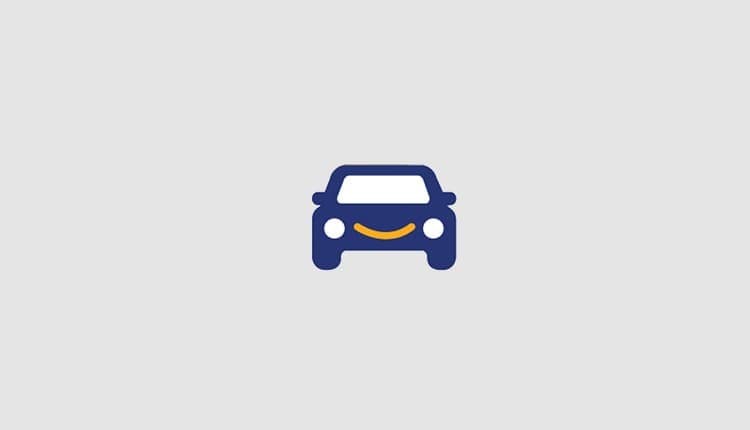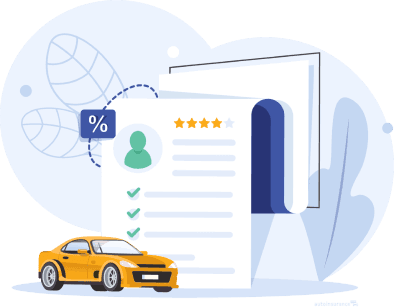
Cost of Auto Insurance for Non-Owners
Expect to pay an average of $438 annually for a non-owner insurance policy.
Get quotes from providers in your area

All states except Virginia and New Hampshire require registered cars on the road to have car insurance. Even if a car has insurance, a licensed driver who borrows or rents cars frequently may want to get a non-owner policy for added liability protection. Because this type of policy provides liability protection (bodily injury and property damage liability) only, it tends to be cheaper than full coverage auto insurance. Drivers of non-owner policies can expect to pay an average of $438 per year for a policy.
This article takes a closer look at the cost of non-owner policies and what they cover.
Non-Owner Car Insurance Cost
Non-owner auto insurance policies tend to be less expensive than their full coverage counterparts. The average annual policy will run you about $438 each year. This premium provides you with the liability coverage to protect you in the event of an at-fault accident. If you have regular access to a car you don’t own, non-owner insurance could be a good option.
What Is Non-Owner Car Insurance?
Non-owner car insurance is a policy that you buy to protect you while you drive cars you’ve rented or borrowed1. You would get non-owner insurance to be sure that you have enough liability coverage on the car if you were to get into an at-fault accident. When it comes to rental cars, having your own insurance means that you can decline to buy the company’s rental car insurance policy when you sign the contract.
Can You Get Auto Insurance Without Owning a Car?
It is possible to get insurance without owning a car. Not every licensed driver owns a car. You might fall into the category of drivers who borrow or rent cars frequently. When you have this type of driving arrangement, it makes sense to get a non-owner insurance policy, which provides liability protection without the concern of insuring the vehicle you’re driving.
Factors That Affect the Cost of Non-Owner Insurance
- Amount of liability protection: The more liability protection you choose, the more expensive the policy will be.
- Driving record: Someone with a bad driving record will pay more than someone with a good driving record.
- Location: Some areas have higher accident rates than others and will have higher premiums2.
How Does Non-Owner Car Insurance Work?
A non-owner policy protects you from the potential claims against you when you have an at-fault accident. If you hit someone, something, or another car, liability coverage will pay to fix the damage and the injuries of those you hit. Because non-owner insurance offers coverage with liability limits only, it will not cover your own injuries, injuries to any of your passengers, or damage to the car you are driving.
TIP
If you have concerns about causing damage to a vehicle you drive, check with the vehicle owner to see what coverage they have in place already. If they have collision coverage, damage to the vehicle is covered in at-fault accidents.
What Does a Non-Owner Policy Cover?
Non-owner insurance covers the liability incurred in at-fault accidents. Liability protection pays for the medical bills and property damage of those you have hit. The minimum non-owner policy will meet the state minimum insurance requirements, keeping you compliant with the law.
A non-owner policy does not cover the rental car or the borrowed car itself; rather, it provides finances for the other party’s injuries and damages only. To get the car itself repaired, you will need collision coverage, which is part of a full coverage policy. Because you are not the owner of the car, a non-owner policy will not provide coverage for it. The insurance company assumes that the car owner has their desired coverage for their vehicle since they are responsible for registering it.
Is Non-Owner Car Insurance for You?
You need non-owner insurance if:
- You have a valid driver’s license and don’t own a car, but you rent or borrow one frequently.
- You are between cars but want continuous coverage to keep your premiums down with insurers.
TIP
Some insurance carriers will give you discounts or reduced premiums if you are insured continuously. This means that if you are in between cars, you can get a better rate by maintaining a non-owner policy until you get a new car.
You don’t need non-owner car insurance if:
- You own a car or an insurance company lists you as a primary driver on a policy.
- You drive a vehicle you don’t own for business purposes only (e.g., you’re a delivery driver for your employer).
How to Buy Non-Owner Car Insurance
- Contact an insurance carrier.
- Provide your driver’s license number and contact information, including your home address. The insurance company will look up your driving history and price the policy based on your home location.
- Compare quotes among insurance providers.
- Choose a policy and pay the premium.
Because there is no car involved in the quote process, buying a non-owner insurance policy is relatively straightforward.
How to Get Non-Owner Insurance With an SR-22
An insurance company files an SR-22 with the state. An SR-22 says that you meet the minimum insurance requirements of that state, serving as proof that you have the required type of coverage. If you need an SR-22 but don’t have a car, a non-owner insurance policy will help you meet the state requirements. Here’s how to get one:
- Apply for non-owner insurance with a carrier. (Note that not all companies take someone with an SR-22 or FR-44, as it makes them a high-risk driver.)
- Mention that you need an SR-22.
- Pay the premium and any additional filing fee. Some carriers will charge a $25 fee to file the form on your behalf.
Best and Cheapest Non-Owner Car Insurance Companies
Some insurance companies can handle non-owner insurance quotes and policies better than others. These companies have a process that makes them better options for someone looking for the best insurance company to work with. When getting non-owner quotes, consider the following companies:
- GEICO
- Progressive
- USAA (if you are or have ever been in the military)
- Esurance
- Travelers
Other companies, such as State Farm, offer non-owner policies but require you to submit paper applications for underwriting, since their computer quoting systems don’t handle non-owner policies.
Recap
Getting a non-owner insurance policy is an important step when you borrow or rent cars. The policy makes sure that you have enough liability protection to cover you in the event of an at-fault accident. A non-owner policy is inexpensive compared to purchasing a full coverage policy and valid for any car you drive.
FAQs
The average monthly cost of a non-owner car insurance policy is $36.51.
The average cost of a non-owner SR-22 insurance policy is $1,648 per year. SR-22 policies are more expensive due to the bad driving record of the policyholder compared to someone with a clean driving record.
Citations
Non-Owned Car Insurance. Progressive. (2022).
https://www.progressivecommercial.com/coverages/non-owned-car/What factors may affect your car insurance premium? Allstate. (2022).
https://www.allstate.com/resources/car-insurance/what-affects-premiums-and-rates

